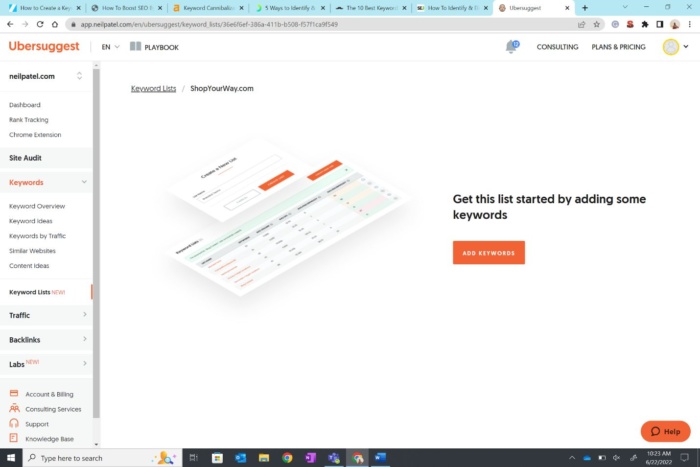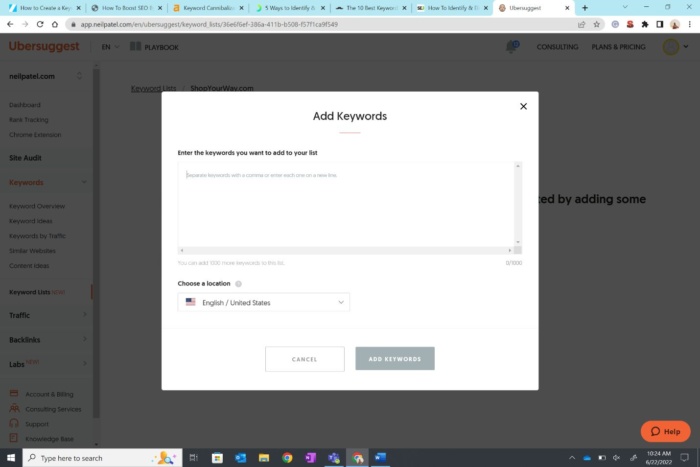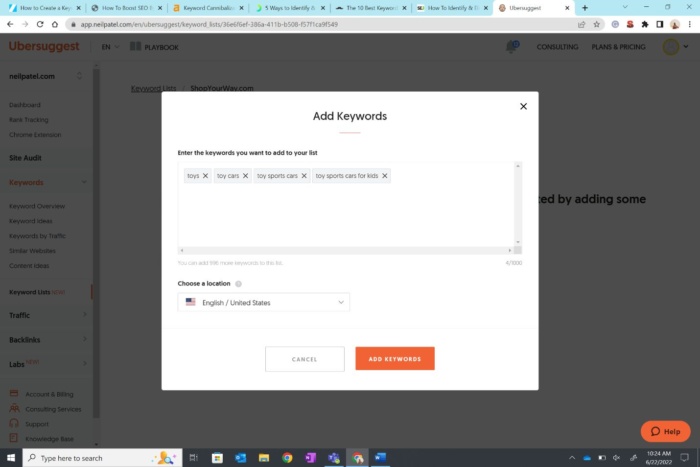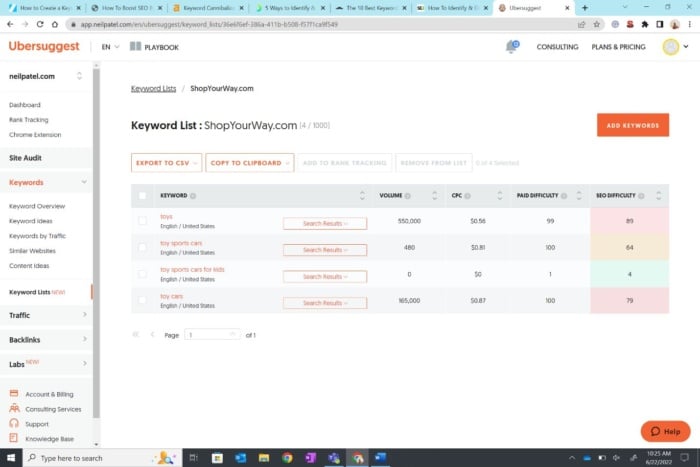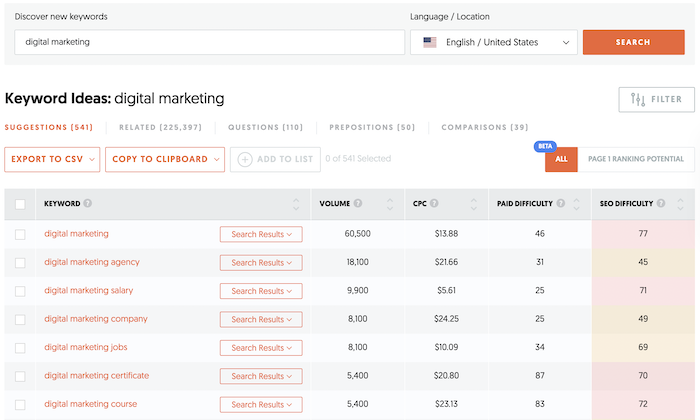Preventing Keyword Cannibalization with Ubersuggest
By Neil Patel
The name of the SEO game has changed so much since I started in the industry.
Driven by sales made on social media and social ecommerce booming earlier than expected, along with businesses wanting to bulk up their online presence, search volumes have increased tremendously over the years.
These days, Google processes over 100,000 searches per second, every day. Chances are, people are looking for all types of businesses, from a digital marketing agency to the newest brunch spot in their area.
Users are demanding relevant content. So, keywords play a critical role in your page rank.
While a steady stream of relevant content is helpful to your audience, keyword cannibalization could threaten your content’s performance.
You don’t want to weaken your content production engine by having a weak SEO keyword strategy or focusing too much on the same topics.
The words you choose will dictate not only who will see your content, but how it performs. If you’re consistently adding to your site, you may need an audit. This is important so you don’t showcase similar topics, causing keyword cannibalization.
Is your content taking a bite out of your chances for high-ranking opportunities?
You can’t have your high Google rank and eat it too.
So, don’t make this big SEO mistake.
Let’s break down why keyword cannibalization is harmful to your site and how I can help you fix it with the right tool.
What Is Keyword Cannibalization?
Believe it or not, this is a common problem with SEO.
Having multiple pages on your website optimized for the same or similar search query can result in all pages ranking poorly.
Keyword cannibalization is when you become your own competition for the top-ranking position, but this isn’t a good thing.
These pages are eating away at each other’s organic performance, hurting your search rankings.
The issue of keyword cannibalization confuses search engines as well as users.
You’ll need to switch up your SEO keyword strategy to not lose page authority, slate your relevant pages, or waste your crawl budget.
If this term doesn’t sound familiar to you, check out my explanation on “what is keyword cannibalization?” to sharpen your keyword strategy.
What Do Site Owners Get Wrong With Keyword Strategies That Leads to Keyword Cannibalization?
After laying the foundation for your online presence, you may find issues with your content and your SEO keyword strategy. With so much content, you’re bound to cover topics more than once.
For example, WP Engine has multiple content categories, but by using keywords to shape or refresh their content, they can avoid cannibalization issues.
To avoid SEO missteps, figure out how to avoid keyword cannibalization.
It’s likely to be resolved by reimagining your keyword strategy. Even if you’re a new brand, it is good to keep this practice in mind.
Don’t feel bad about this happening on your site.
Targeting similar keywords on multiple pages will reveal the flaw to this formula – …read more
Source:: Kiss Metrics Blog

